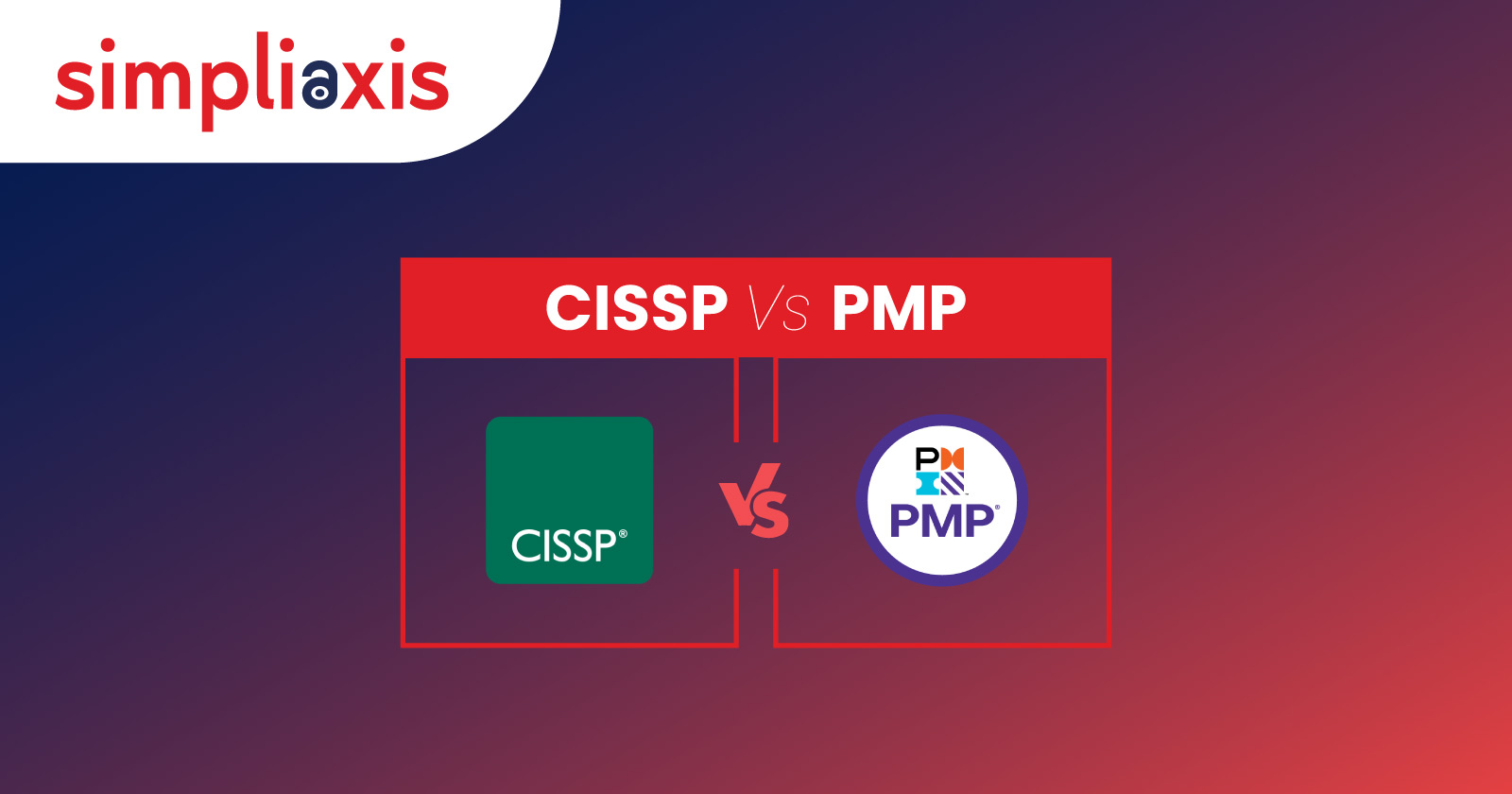Introduction :-
A certification in the relevant field is always suggested for career growth. However, the individual must know which certifications are beneficial and will lead them in their career. Two certifications have become popular recently for IT professionals and project managers: CISSP and PMP. Both certifications differ, but people are usually confused about which to choose.
This blog will help you better understand, clarify your confusion, and learn whether CISSP vs. PMP is best for your career. You can learn about each certification in detail and make a clear decision about which one is suitable for your career.
What is CISSP?
CISSP stands for Certified Information Systems Security Professional. The certificate is recognized globally and offered by the International Information System Security Certification Consortium (ISC)².
CISSP certification is crafted for professionals who have skills and knowledge related to the field of information security. The certification helps to verify how well an individual understands cybersecurity principles, tools, and techniques in various domains. How the professional can manage risks and mitigate them smoothly. Also know about security behaviors of the organization, i.e., asset security, communication, network security, identity and access management, security assessment and testing, security operations, and software development security.
A candidate with the CISSP certification validates that the individual effectively plans, creates, executes, and manages a successful cybersecurity program.
How do you qualify for CISSP certification?
To qualify for the Certified Information Systems Security Professional certification:
- Candidates need to pass the exam and have a minimum of five years of professional experience in two or more of the eight domains (paid experience).
- You can substitute one year of paid experience with a relevant four-year academic degree or certificate.
Who can opt for CISSP certification?
- Chief Information Security Officer
- Chief Information Officer
- Director of Security
- IT Director/Manager
- Security Systems Engineer
- Security Analyst
- Security Manager
- Security Auditor
- Security Architect
- Security Consultant
- Network Architect
How do you qualify for PMP certification?
To qualify for the Project Management Professional certification:
Option 1: Four-Year Degree
- A secondary degree (high school diploma, associate's degree, or global equivalent)
- 60 months of leading and directing projects
- 35 hours of formal project management education
Option 2: Bachelor's Degree
- A four-year degree
- 36 months of leading and directing projects
- 35 hours of formal project management education
Option 3: GAC-Accredited Degree
- A bachelor’s degree or higher from a GAC-accredited program
- 24 months of project leadership experience in the last 8 years
- 35 hours of formal project management education
Read More about PMP Exam Eligibility.
Knowledge Areas:
CISSP: Covers a specific set of information on cybersecurity domains, including security and risk management, asset security, architecture and engineering, communication and network security, identity and access management (IAM), assessment and testing, operations, and software development security.
PMP: Covers a profound dimension of knowledge areas and includes bits and pieces related to project management likeproject integration, scope management, time management, cost management, quality management, human resource management, communications management, risk management, and procurement management.
Career & Salary Opportunities:
CISSP: CISSP is one of the highest-paid job certifications. According to a survey conducted by (ISC)², the average salary of CISSP-certified professionals in the United States is $14k to $180k annually. This certification enhances an individual's position in information security careers and helps them deliver successful projects, increasing their potential earnings.
PMP: PMP certification has become an essential part for project management professionals. With the increase in the job market, there has also been an increase in salary and career growth. According to a recent survey by PMI, the average salary of PMP-certified professionals is $96k to $200k. Professionals looking to dive deep into project management opportunities across various industries can think about this certification. It has a potential for higher salaries depending on experience and the individual's specific role.
Which one should you choose, CISSP or PMP?
Choosing between the two certifications may depend on an individual's interests and career goals. The CISSP specializes in information security and cybersecurity. On the other hand, the PMP is optimal for project management, illustrating effective project leadership. Professionals can understand their industry requirements, personal interests, and experience. Both certifications have great career growth opportunities and advancement.
Conclusion
To conclude, choosing between CISSP and PMP can be a personal choice for aspirants. One can make this decision by doing market research and thinking about personal passions or seeking advice from industry-related personnel. Choosing a relevant certification for the career can give long-term results and help an individual establish a successful career.






















